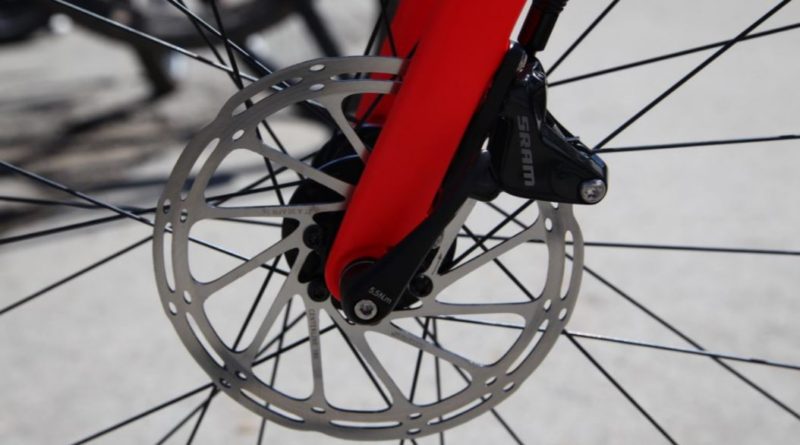CPA send UCI legal warning on disc test in pro cycling, WFSGI issues statement
Cyclistes Professionnels Associés lawyers have sent the UCI a “legal warning” relating to renewed use of disc brakes in the pro peleton.
At the present time there is an on going test period for disc brake use in pro cycling, which has been in force since the start of the season. The first test period ended in April on the back of claims by Fran Ventoso that a disc had caused him to sustain an otherwise avoidable injury.
A further incident in the Abu Dhabi relating to an accident with Owain Doull has re-ignited the debate. Early investigations have thus far concluded damage said to be caused by discs has been overstated.
The latest letter re-affirms the CPA’s position that it feels the UCI has not properly vetted disc technology, outlining that it holds the UCI responsible for any damage or accident that should happen. The legal letter references EU law on employment rights that promote a safe working environment as a basic right.
This morning the WFSGI, which has been withholding public statement, finally issued a press release outlining that it is taking complaints “very seriously”.
The statement reads:
UCI Disc Brake Review group
The UCI has installed a working group consisting out of members from the WFSGI (Industry), the rider representative CPA, the team’s organization AIGCP and the UCI itself. This working group closely monitor’s the trial of disc brakes in road racing, reported incidents and studies potential improvements for the usage of disc brakes in road racing. The experts from the different organizations in this working group are empowered for making proposals to the UCI equipment commission.
Position of industry and riders
Today the industry provides both brake systems and leaves the decision as to which system to use (rim or disc) to each team and/or rider. A fact that was confirmed by all riders using disc brakes in races so far. The industry encourages riders to make some first experience and testing with disc brakes before they provide comments.
Mixed peloton
Safety is a major concern to the industry and this towards all cyclists. One of the concerns in pro racing is the fear of different brake performance within the peloton leading to potential incidents.
It shall be known that some material/combinations currently used in pro racing already show a clear difference in brake performance. Some combinations may not even live up to the legal requirements set by international standards (CEN/ISO) for commercial bicycles.
That’s why the UCI working group has identified this key point and is looking into ways to improve the level of safety for pro riders by enforcing minimal standards of brake performance. That can be taken as a starting point to eliminate concerns of different braking performance regardless the brake system used.
Potential Cuts
Evidence on cuts under racing conditions are not available since there was no reported accident with disc brakes so far. Nevertheless, the industry agreed with UCI, CPA and AIGCP on rounded disc brake rotors in order to react on the perceived risk by riders, as well as to support a faster exchange of the wheels from neutral support and team’s service. It has to be mentioned that the ISO standard 4210-2; 4.2 does already require exposed edges on the entire bicycle to not be sharp.
Disc brakes equipped bicycles in the market
Today our industry has sold already more than 15 million disc brake bikes to the public market. Most of these products are sold for MTB or cyclo-cross, city use, but also the number of products sold for road racing is growing rapidly.
The argument that pro racing is different than amateur racing or the commercial market is absolutely heard by the industry as well. Nevertheless, a fair chance of a testing period should be acceptable given all above facts.
The WFSGI will continue to work closely with the UCI, CPA and AIGCP in order to make a smooth introduction of disc brakes into professional road racing.
VeloNews recently published a tounge-in-cheek in-house demo of what a disc brake could cut. The results, surprisingly little.



